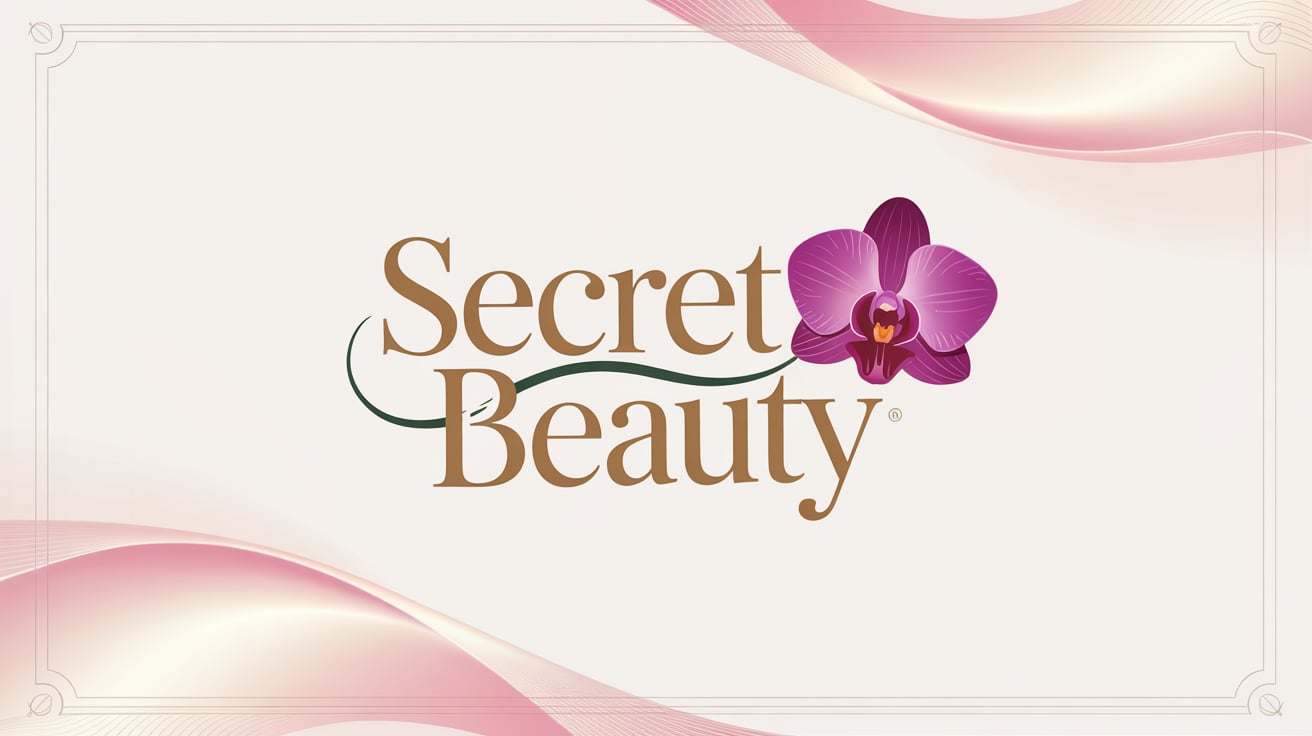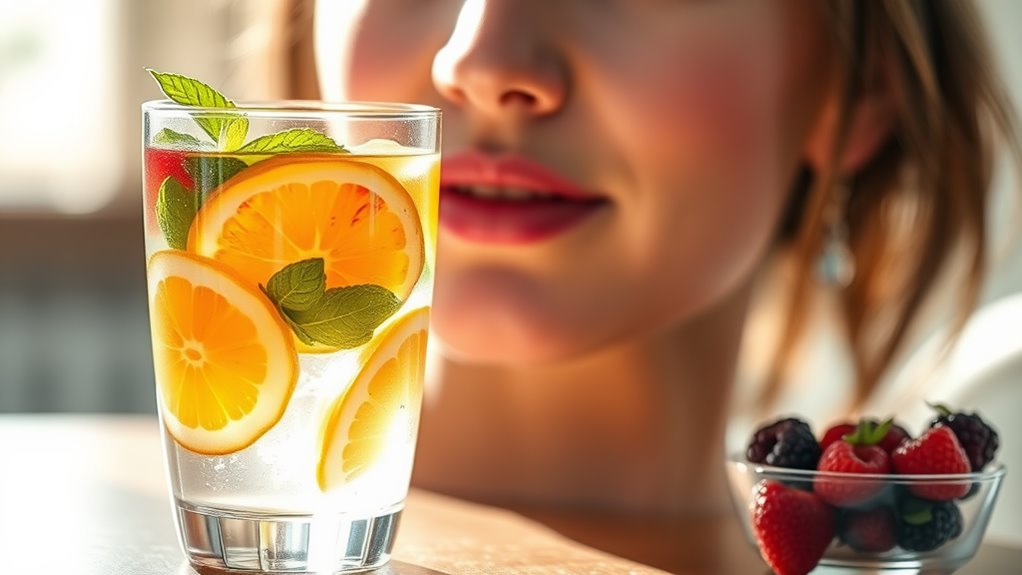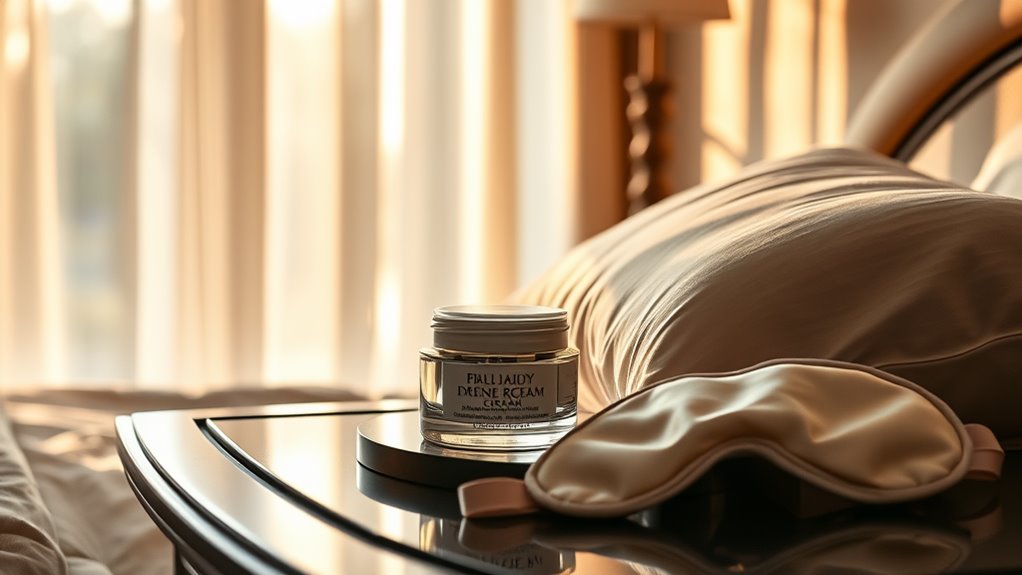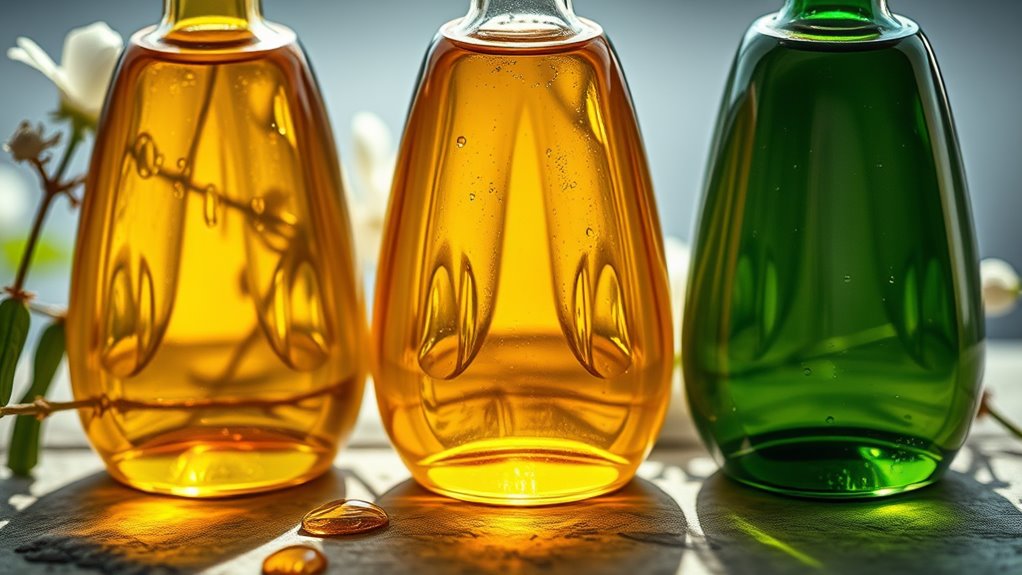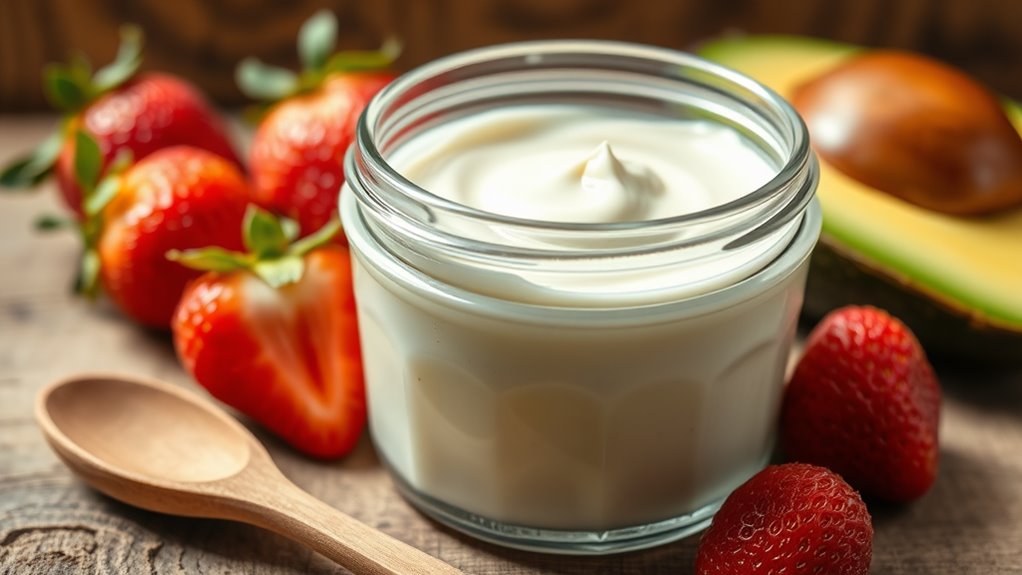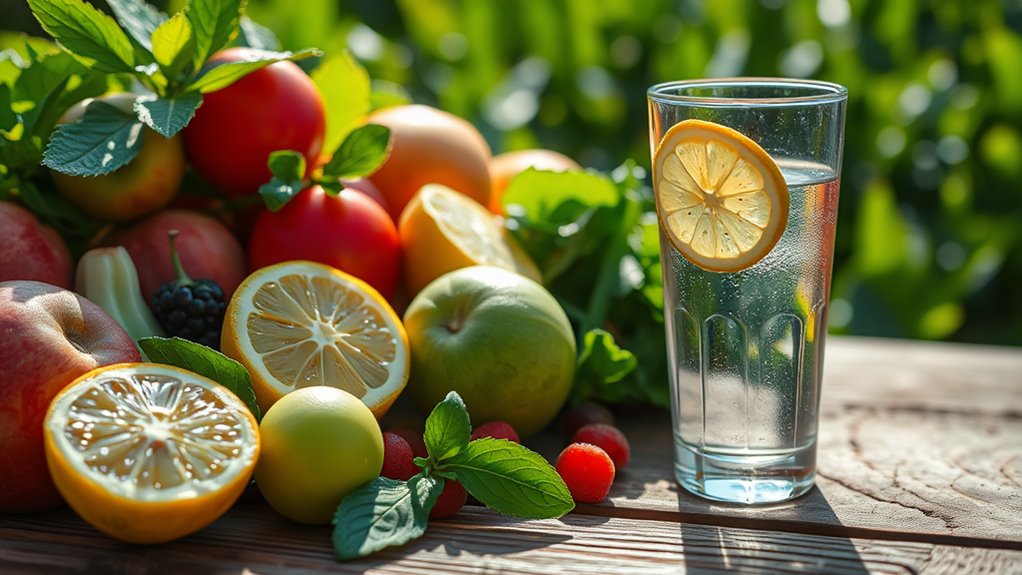Dehydration Might Be Aging You-Fix It With These Hacks
Dehydration could be speeding up your aging process, and it’s essential to take action now. Look for signs like dry skin, fatigue, and dark urine. To fix this, hydrate by drinking at least eight glasses of water daily and munching on water-rich foods like cucumbers and strawberries. Boost your hydration with serums, sunscreen, and lifestyle tweaks like setting reminders for water breaks. Keep exploring to discover even more hacks for maintaining youthful, vibrant skin.
Key Takeaways
- Drink at least eight glasses of water daily to maintain skin health and combat dehydration effects.
- Incorporate hydrating foods like watermelon, cucumbers, and strawberries into your diet for added moisture.
- Use hydrating serums with hyaluronic acid to improve skin elasticity and appearance.
- Limit caffeine and alcohol intake, as they can exacerbate dehydration and accelerate aging.
- Set hydration reminders and carry a refillable water bottle to ensure consistent water intake throughout the day.
Understanding the Impact of Dehydration on Aging
As you age, your body’s ability to retain water diminishes, making dehydration a pressing concern. This loss can lead to a cascade of issues, accelerating the aging process.
Understanding anti-aging hydration is critical for maintaining your energy. When your cells lack adequate water, they can’t function effectively, which can manifest in dull skin, decreased energy, and impaired cognitive function. To combat this, prioritize hydration by incorporating water-rich foods and beverages into your diet. Aim for ideal fluid intake tailored to your activity level. Consider supplements or electrolyte-rich drinks if needed. Additionally, chronic dehydration has been shown to significantly impact skin elasticity, further contributing to the aging appearance.
Signs of Dehydration That May Be Accelerating Your Age
Recognizing the signs of dehydration is crucial, especially since they can sneak up on you and contribute to premature aging.
Here are three key indicators to watch for:
-
Dry Skin: If your skin feels rough or lacks elasticity, it’s a sign that you’re not retaining enough moisture, which can lead to wrinkles and fine lines.
-
Fatigue: Persistent tiredness can stem from dehydration. When your body lacks water, it struggles to function efficiently, making you feel older than you are.
-
Dark Urine: If your urine is darker than light yellow, it indicates dehydration. This simple check can reveal much about your hydration status and its impact on your health.
Additionally, effective hydration techniques such as internal hydration tracking can significantly enhance your skin’s appearance and overall health.
Stay vigilant about these signs to maintain your youthful radiance.
Effective Hydration Strategies for Youthful Skin
Addressing dehydration not only helps you feel better but also plays a significant role in maintaining youthful skin. Start by drinking at least eight glasses of water daily. This simple habit keeps your skin plump and elastic.
Incorporate hydrating foods like cucumbers, oranges, and strawberries into your meals; they provide essential vitamins and minerals. Additionally, consider that hydrating beverages can significantly enhance your skin health and appearance.
Consider using a hydrating serum or moisturizer containing hyaluronic acid to lock in moisture. Don’t forget to apply sunscreen daily; UV rays can dehydrate your skin, accelerating aging.
Limit caffeine and alcohol, as they can dehydrate you. Finally, establish a consistent skincare routine that emphasizes hydration, allowing your skin to thrive.
Lifestyle Hacks to Boost Your Hydration
How can you make hydration a seamless part of your daily life? Integrate these lifestyle hacks to elevate your hydration game:
-
Set Reminders: Use your phone or smart devices to send you hydration alerts. Regular reminders help keep water top of mind.
-
Infuse Your Water: Boost your water intake by adding slices of fruits or herbs. This not only enhances flavor but also makes drinking water more enjoyable.
-
Carry a Water Bottle: Always have a refillable water bottle with you. This visual cue encourages frequent sips throughout the day, ensuring you stay consistently hydrated.
Foods and Beverages That Help You Stay Hydrated
While many people think of water as the primary source of hydration, a variety of foods and beverages can also play an essential role in keeping you hydrated. Incorporating these into your diet can greatly enhance your hydration levels.
| Hydrating Foods | Hydrating Beverages |
|---|---|
| Watermelon | Coconut water |
| Cucumber | Herbal teas |
| Strawberries | Electrolyte drinks |
These options not only quench your thirst but also provide crucial nutrients. Watermelon and cucumber, for example, have high water content, while coconut water offers electrolytes to replenish your body. By combining these hydrating foods and beverages, you’ll master the art of staying hydrated, helping you look and feel youthful. Additionally, consuming collagen-rich foods can further support your skin’s hydration and elasticity. Embrace these choices for ideal wellness.
Frequently Asked Questions
How Much Water Should I Drink Daily for Optimal Hydration?
You should aim for about half your body weight in ounces of water daily. So, if you weigh 150 pounds, work for 75 ounces. Adjust based on activity level, climate, and personal needs for ideal hydration.
Can Dehydration Affect My Mental Health and Cognitive Function?
Yes, dehydration can considerably impact your mental health and cognitive function. It can lead to fatigue, decreased concentration, and mood swings. Staying properly hydrated helps maintain your mental clarity and overall emotional well-being.
What Are the Long-Term Effects of Chronic Dehydration?
Chronic dehydration can lead to serious long-term effects, like kidney damage, joint pain, and cognitive decline. It’s essential to stay hydrated to maintain your overall health and prevent these potentially irreversible complications from developing.
Is There a Difference Between Hydration and Moisture for the Skin?
Yes, there’s a difference. Hydration refers to water intake for overall health, while moisture relates to skin’s surface hydration. You need both for ideal skin function, so prioritize drinking water and using moisturizers effectively.
Can I Overhydrate, and What Are the Symptoms?
Yes, you can overhydrate. Symptoms include nausea, headache, confusion, and swelling. If you’re drinking excessive amounts of water without balancing electrolytes, your body may struggle to maintain proper fluid levels, leading to these issues.
